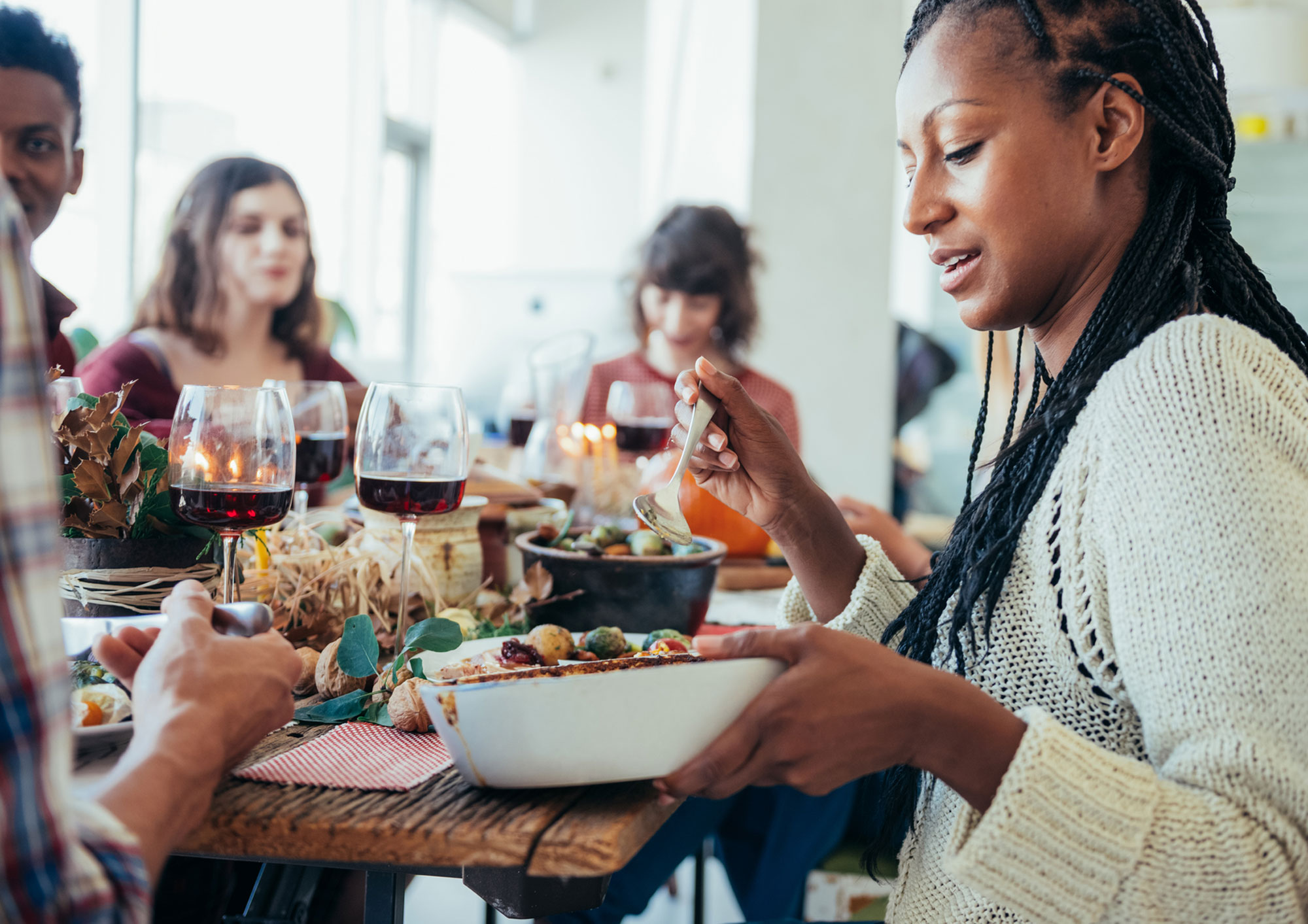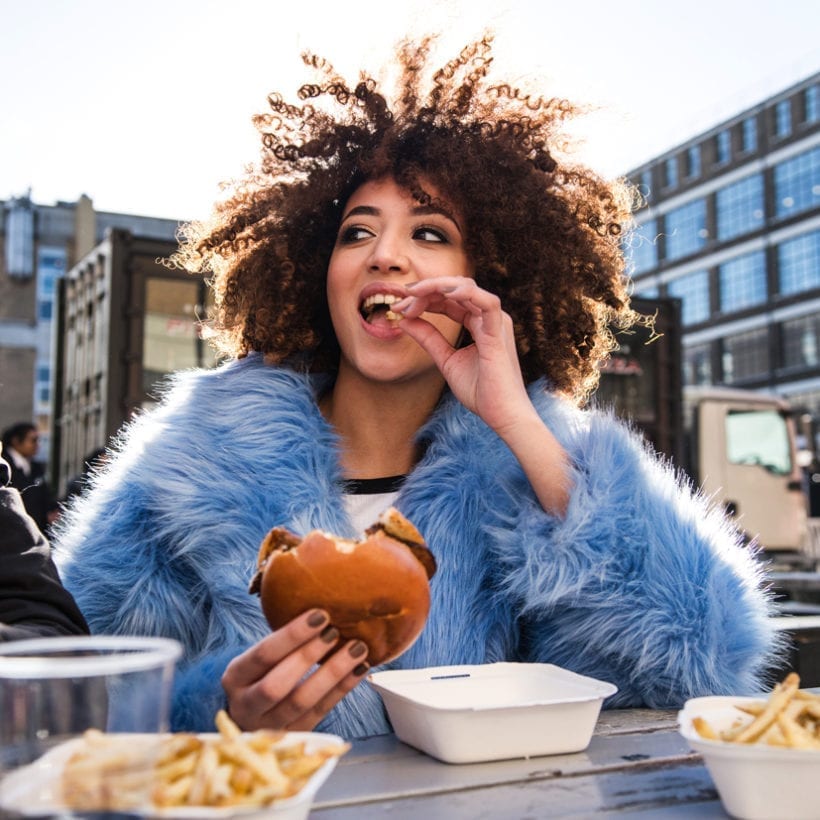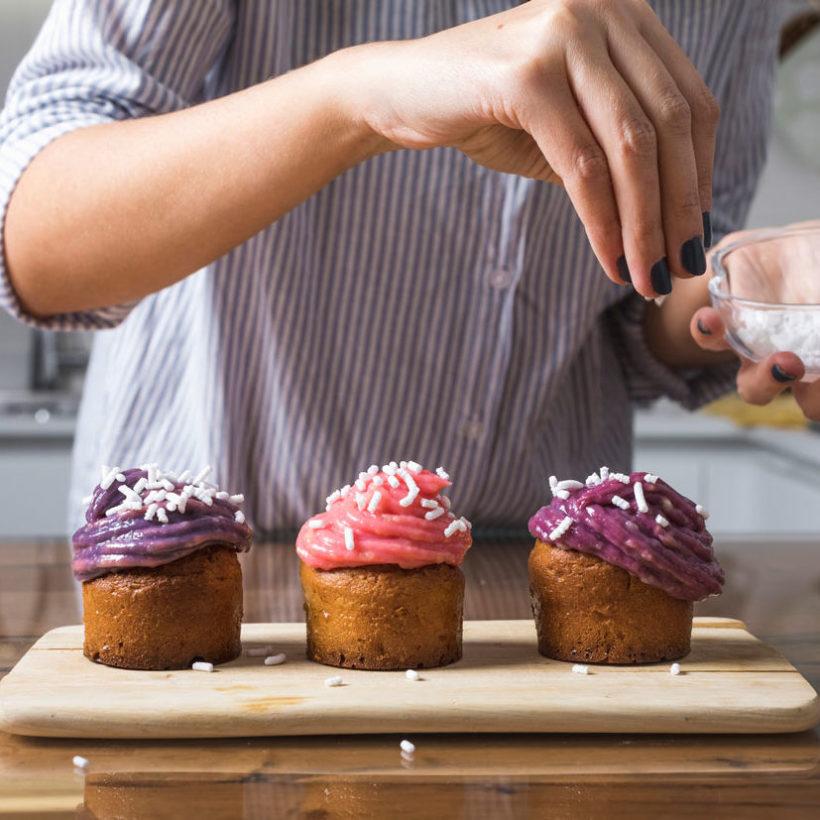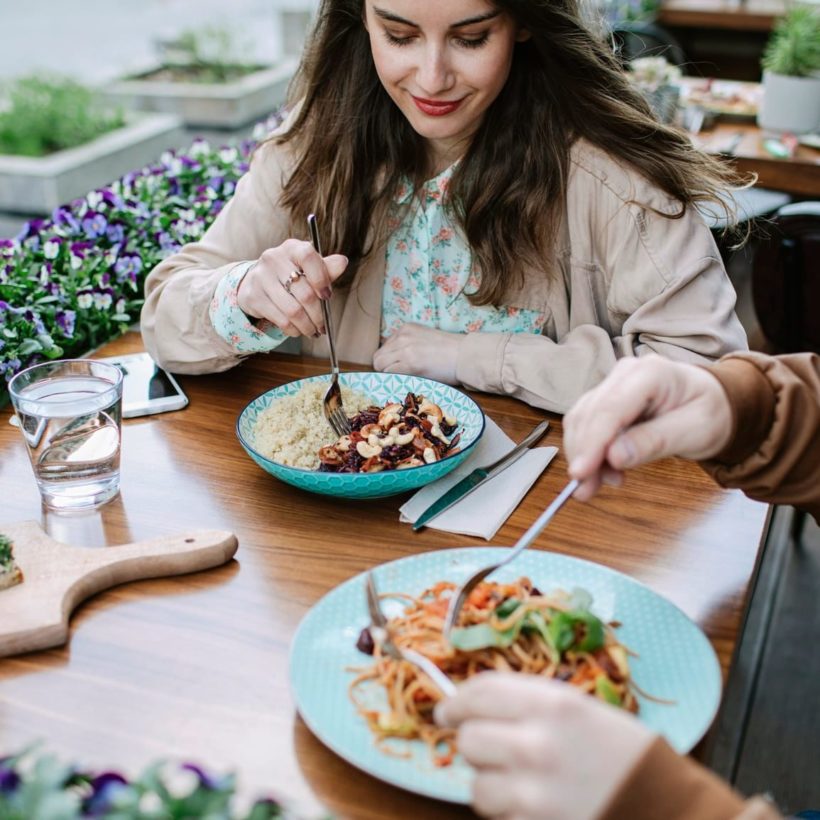The gut is kind of a big deal; it’s been found to play a role in everything from your immune system to your mood. And the holidays, unfortunately, are prime time for things in the gut to go wrong. Between a Thanksgiving meal that leaves you uncomfortably full to holiday hosts that keep the champagne flowing, the carbs, alcohol, and sugar that define the season (and also make it delicious) can do a number on your gut microbiome.
For the uninitiated: “The gut barrier is made up of the microbiota, their products — called short chain fatty acids — antimicrobial compounds, and immune tissues,” says Jennifer Maeng, MS, RD, a registered dietitian in N.Y.C. “The function of the gut barrier is to prevent harmful microorganisms and substances from passing through, and to help nutrient digestion and absorption.”
While the season’s culinary offerings can do a number on the gut, “beneficial ‘gut health’ is a result of longstanding dietary and health practices,” Maeng says. “If you eat lots of sugar cookies one Saturday, your gut health is not going to be instantly dysregulated.” Fortunately, the body is smarter than we think, and it’s able to regulate itself pretty well even when our diet is out of whack.
Meet the Experts
Jennifer Maeng , MS, RD, is a registered dietitian in N.Y.C.
Keri Gans is a nutritionist in N.Y.C.
That said though, the Western diet in general tends to be high in saturated fat and added sugar, she says. And a poor diet over time can become a problem for the healthy gut microbes in your digestive tract, “because these microbiota actually respond to dietary changes to help keep your gut regular,” she says. So, if you’re eating excess sugar nonstop for several months, it could trigger a pro-inflammatory response among the microbes, throwing off both your microbiome and overall digestion.
With that in mind, consider these tips for tending to your gut whatever comes your way this holiday season, ensuring you stay healthy, happy, and not at all bloated come 2023.
The festive offender: a huge, rich meal
Looking at you, Thanksgiving. Research shows that eating high-fat meals over time can lead to a negative shift in the microbiome, says New York-based nutritionist Keri Gans. The good news? “A one-time large holiday meal that is high in fat may take longer to digest and cause an upset stomach and discomfort,” she says; however, it won’t necessarily make or break your overall gut health.
Still, some steps post-dinner can help. Immediately after your meal, “try taking a walk and drinking water to help with digestion, sit up straight to prevent any reflux, and, most of all, simply relax and don’t stress over it,” Gans says. After all, food is meant to be enjoyed, especially if your aunt just spent eight hours cooking it.
The morning after, “continue to drink lots of water and eat foods with healthy fiber and protein — veggies, beans, lean protein,” says Maeng. “Restricting yourself in consequence will not allow your body the adequate energy it needs and you’ll end up feeling worse.”

The festive offender: spiked eggnog
Champagne, punch, a full-bodied red with dinner — ’tis the season to keep the drinks flowing. And, of course, alcohol can offer fun both in moderation and in the right setting, allowing for easier social interactions and giving a party a celebratory feel.
However, “too much alcohol can disrupt our healthy gut and cause diarrhea, acid reflux, and bloating, because alcohol alters how we digest sugars — leading to an increase in gas production in the gut,” says Maeng. And heavy drinking is even worse: It can contribute to the growth of bad bacteria in the gut, too, which can lead to a rise in inflammation.
The good news is that non-alcoholic options now abound; it’s easy to find a non-alcoholic IPA that tastes like the real thing, while NA spirits are a dime a dozen. Still want to indulge? Just go in with a game plan. “Eat high-fiber foods and fermented foods,” says Maeng. “A healthy, balanced diet is always better than drinking alcohol on an empty stomach.” She also recommends drinking a glass of water for drink in order to stay hydrated and aid digestion. Bonus: It might help you swerve a hangover, too.
The festive offender: holiday cookies
Sugar serves as a great snack for bacteria, which is why it can be especially impactful on the microbiome. In fact, research has found that high sugar intake can mess with the proportions of different types of bacteria in the gut, supporting those that have more pro-inflammatory effects. And since chronic inflammation has been linked to everything from diabetes to heart disease, it’s worth keeping that in check.
As Maeng said earlier, though, eating a ton of sweets once in a while won’t do you in, so don’t worry about swearing them off entirely. Just supplement your dessert with good-for-gut foods like yogurt and beans.
Also worth keeping in mind: Swapping sugar for artificial sweeteners, which might seem like a good idea in theory, may actually do more harm than good. “Artificial sweeteners increase risk of glucose intolerance in humans and may negatively impact gut health,” says Maeng.

The festive offender: seasonal stress
This is a not-so-festive factor, but it still bears including, since it can have an outsized effect on the gut. Stress can be dialed all the way up during the holidays; maybe you have anxiety about seeing your extended family, or you’re missing a loved one. Perhaps your holiday-shopping list is giving your budget a run for its (literal) money. Whatever the cause, “high stress may affect the microbiome composition in our gut, leading to inflammation and gastrointestinal issues, such as diarrhea,” says Gans.
While reducing stress can help, so can taking active steps to nourish and maintain a healthy gut. One easy way is make sure you’re staying active, since “exercise can actually increase the diversity of gut microorganisms,” Maeng says. (Plus, it’s a well-known stress reducer in its own right.) If that means you sign up for a local Turkey Trot — and enlist a few cousins to join you — then so be it.







